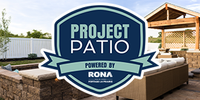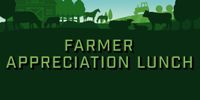Dakota Tipi First Nation is waging the war against drugs. A drug task force has been implemented, and they have three safety officers trained and at work. A board has been formed and members say drug use has gotten out of control in the community and they're set to hit the issue hard.
Board member Diane Smoke says she's a grassroots person and notes Dakota Tipi First Nation youth are dying before their eyes.
"As an elder, it hurts to see that happening," says Smoke. "We have personal experiences and things going on at home, too. But what can we do? Where do we turn? I turned to the Chief and this is where we're starting."
Smoke explains thiegeneral public isn't hearing much about the current drug problem, and as older members of the community, it's a new kind of addiction.
"When we were young in the 60s and 50s, it was alcohol and maybe marijuana and maybe mushrooms," continues Smoke. "That's all we ever heard of. But now, in the modern day and the current days, it's all chemicals. It's all a mixture and cocktail of different chemicals that the young people don't even know what they're putting in their bodies. So, I guess it's just a lot of not understanding what the drugs are all about and what they do to you. Young kids don't know that if you do heroin once, you could die. They're just doing it by themselves and overdosing. They're not educated in the drug world, either."
She says she can only guess how horrible it must be as youth get caught up in addiction to hard drugs and journey down the road to death at such young ages.
"I came to the chief because one of my loved ones, a grandchild, was overdosing," notes Smoke. "I wished I had Narcan (naloxone nasal spray - an over-the-counter opioid overdose treatment). I wished I had somebody to turn to, and there was no one, so I phoned the police and ambulance, and they took him to the hospital."
Smoke says her grandchild recovered, and she met the Chief the next day, asking him to do something.
"Being all alone, there's no way we can handle this by ourselves," continues Smoke. "We need to get together. I know that a lot of the families in the community are experiencing problems because of drugs and alcohol. So, this is part of finding brainstorm solutions. We need a lot of funding to do something. This was an eye-opener for me, when my grandson was overdosing and I saw his mouth going purple and his face going white. "
She notes, before this incident, she didn't care if anybody did drugs on the reserve. Smoke admits she simply wanted them to take drugs and die.
"That was my attitude. But then when I saw my own grandson in there, it was like that opened my eyes," adds Smoke. "I said, 'Well, I better start to care.' Before, I didn't care about anybody, When it's affecting me and hitting me, it's like I better get involved and do something because I'm gonna watch my grandchildren, and I'll be burying them. I would have been out at the funeral right now, if my grandson died."
Smoke says that's what made her decision to become part of the board. She explains she wants others who don't care to have their eyes opened to what she realized, and start caring.
"I used to know famous people," adds Smoke. "Nobody cares about them now. And they're all dead, and now we're watching all our kids, right under our noses, take drugs and die. I had to go through it. I'll care for the community now."
In response to Canada's Online News Act and Meta (Facebook and Instagram) removing access to local news from their platforms, PortageOnline encourages you to get your news directly from your trusted source by bookmarking this page and downloading the PortageOnline app.











